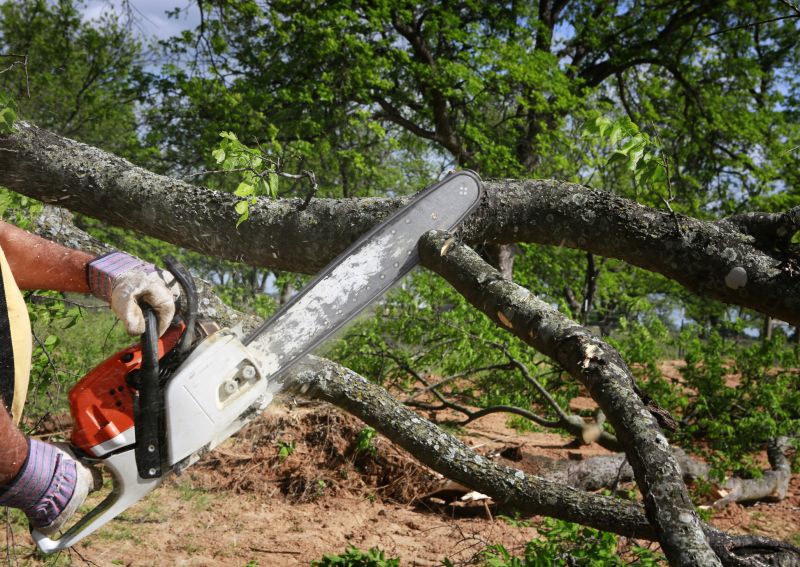Expert Picks For Handling Tree Branch Chippings With Confidence
Find the most reliable products that make chipping, shredding, and transporting tree branches straightforward and hassle-free.
 Tree branch chippings are a versatile material used in various outdoor applications, primarily in gardening, landscaping, and composting projects. They serve as a natural mulch that can help suppress weeds, retain soil moisture, and improve soil health over time. When selecting products for tree branch chippings, it is important to consider the size, texture, and suitability for your specific project needs. Different types of chippings can influence the appearance of your landscape and the effectiveness of weed control or soil enrichment.
Tree branch chippings are a versatile material used in various outdoor applications, primarily in gardening, landscaping, and composting projects. They serve as a natural mulch that can help suppress weeds, retain soil moisture, and improve soil health over time. When selecting products for tree branch chippings, it is important to consider the size, texture, and suitability for your specific project needs. Different types of chippings can influence the appearance of your landscape and the effectiveness of weed control or soil enrichment.
Top Overall Option
Natural Hardwood Mulch
Natural hardwood mulch is a popular choice for tree branch chippings due to its durability and natural appearance. It provides a consistent, textured surface that can enhance the visual appeal of garden beds and landscape features. This type of mulch is often made from shredded hardwood materials, which decompose slowly and can help maintain soil moisture and temperature. It is suitable for a variety of planting environments and can be replenished as needed to sustain its benefits over time.
Types of Products For Tree Branch Chippings
Wood Chips
Coarse and chunky, wood chips are ideal for pathways, playgrounds, and large mulching areas, providing a natural look and good drainage.
Shredded Bark
Fine or medium shredded bark offers a softer appearance and is often used around plants and flower beds for a polished look.
Mulch Blends
Custom blends combining bark, wood chips, and other organic materials tailored for specific soil or aesthetic needs.
Fine Mulch
Finely processed mulch is suitable for delicate plants and container gardening, offering a smooth, uniform surface.
Coarse Mulch
Larger, chunkier pieces used for erosion control and pathways, providing excellent drainage and stability.
Colored Mulch
Dyed mulch options that add vibrant color to landscape beds while serving the same functional purposes as natural mulch.
Recycled Wood Chips
Made from processed recycled wood, these chips are a sustainable option for various landscaping projects.
Decorative Mulch
Enhanced with decorative elements or textures for aesthetic landscaping and feature beds.
Organic Mulch
Pure organic materials designed to decompose naturally, enriching soil over time.
Inorganic Mulch
Non-decomposing options like rubber or stone chips used for specific landscape designs and durability.
Popular Choices
Widely used for its natural look and long-lasting properties in garden beds and around trees.
Preferred for creating natural-looking walkways and playground areas with good drainage.
Commonly chosen for flower beds and decorative garden areas due to its refined appearance.
Popular for adding a splash of color to landscape beds while maintaining functional benefits.
Favored for sustainability and versatility in various landscaping projects.
Ideal for container gardening and delicate plantings requiring a smooth surface.
Used in areas prone to erosion, providing stability and drainage.
Chosen for aesthetic appeal in landscape design and feature beds.
Popular for natural soil enrichment and plant health.
Selected for safety and cushioning in playgrounds and recreational zones.
In addition to their functional benefits, tree branch chippings can contribute to a tidy and organized outdoor space. They are often used around trees, shrubs, flower beds, and pathways to create a natural, aesthetically pleasing environment. Proper application and maintenance of chippings can also help prevent soil erosion and reduce the need for frequent watering. It is advisable to choose products that are free from contaminants and suitable for your climate and soil type.
The variety of products available ranges from raw, unprocessed wood chips to finely shredded bark and specially prepared mulch blends. Each type offers different advantages in terms of appearance, longevity, and ease of use. Whether you are a homeowner, landscaper, or gardener, understanding the options can help you select the most appropriate product for your project. Regular replenishment may be necessary to maintain the desired coverage and effectiveness, especially in high-traffic or heavily mulched areas.
Key Buying Considerations
- Type of wood or organic material used in the mulch
- Particle size and texture suited for your application
- Color options available, if aesthetic is a priority
- Longevity and decomposition rate of the mulch
- Ease of installation and spreading
- Potential for weed suppression effectiveness
- Compatibility with existing garden or landscape design
- Cost and volume options to match your project size
- Source and quality of raw materials used
- Maintenance requirements for replenishment or replacement
- Environmental conditions and climate suitability
- Potential for attracting pests or insects
- Application areas such as flower beds, pathways, or around trees
- Impact on soil moisture retention and temperature regulation
- Availability of different particle sizes for specific uses
This page contains affiliate links. Purchasing through these links may earn a commission at no additional cost to you.
